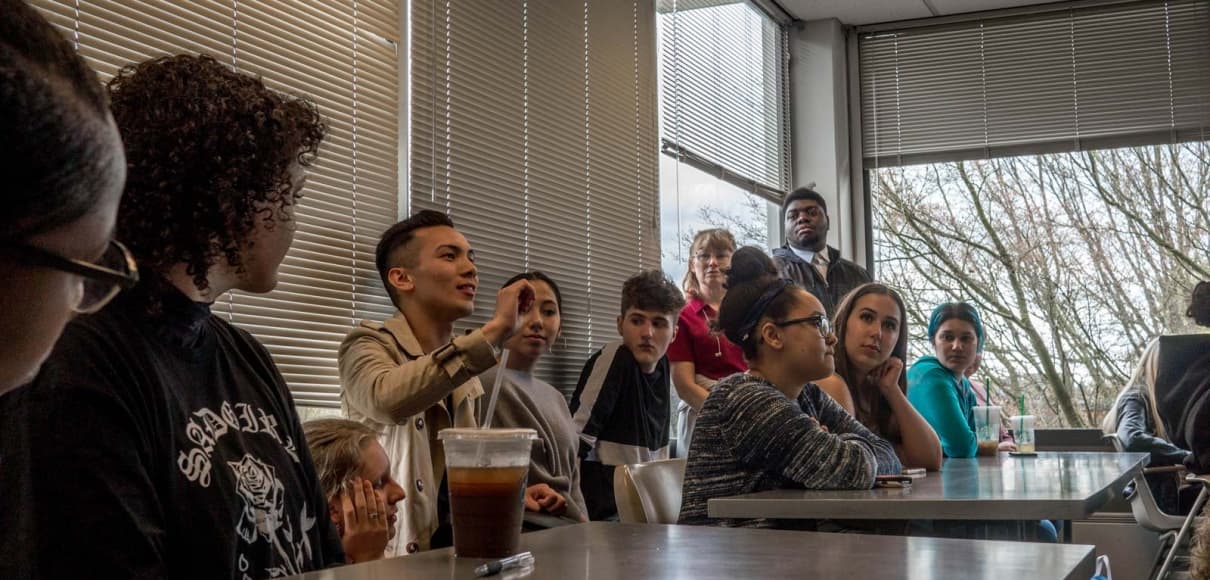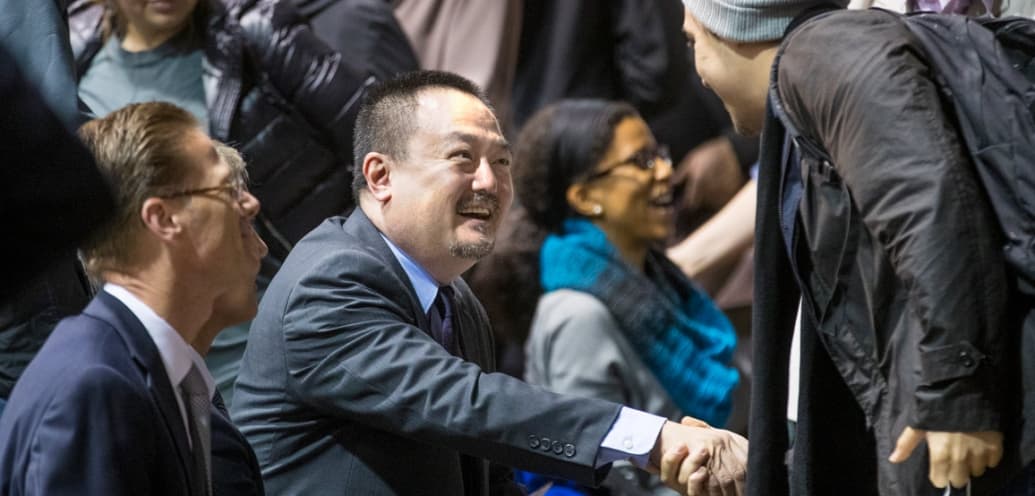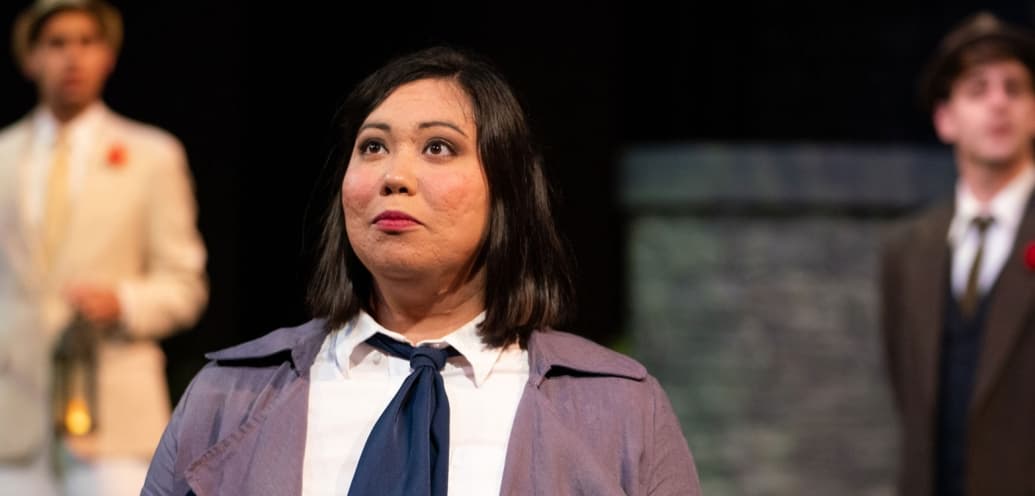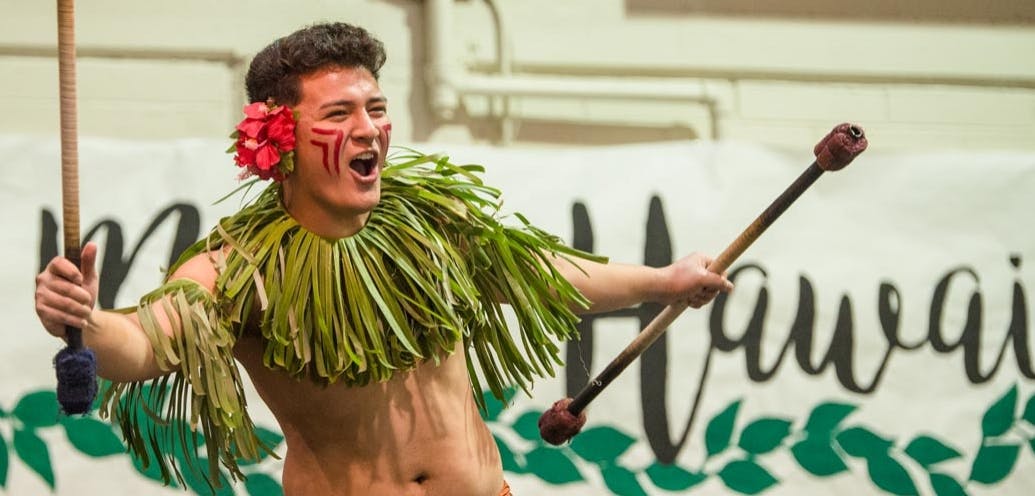For Associate Professor of Theology Brian Bantum — program co-director of Seattle Pacific’s new social justice and cultural studies major — the Marvel film Black Panther is the beginning of a meaningful dialogue surrounding justice.
Accompanied by Jeffrey Overstreet, a writing and film studies instructor, he led a discussion surrounding the movie and its cultural significance. Here are six of the top takeaways:
1. Representation is important — on and off-screen.
Black Panther is a movie that appreciates the richness and depth of both black culture in the United States and African culture. Wakanda is a fictional country that represents what Africa could have been without colonization and perpetuation of false narratives.
The nearly all black cast in this Marvel movie gives its black audience a space where they can see themselves fully — aka, representation. This was also the first time in cinematic history that the two most successful films at the box office had black directors, Ryan Coogler — who also co-wrote Black Panther alongside Joe Robert Cole — and Ava DuVernay’s A Wrinkle in Time.

2. Black Panther is not about a singular black power or excellence, but a communal and collaborative power.
The Wakandans were able to create a futuristic nation hidden from the rest of the world using vibranium, a powerful metal that fuels most of the country. Wakanda’s richness is also found in its people, the five tribes that rely on one another’s cooperation to maintain peace throughout the film. However, with the friction amongst tribes, and dispute surrounding Killmonger’s vision for justice, all the characters were faced with an underlying question of how to approach conflict: Is it better to work through the system or to dismantle the system?
3. The women in Black Panther shatter Hollywood’s stereotypes.
As Overstreet said, T’Challa, the Black Panther, is not the most interesting character in this movie. The women are. Without Nakia, a spy; Okoye, an army general; and Shuri, a teenage technology wizard, T’Challa would be dead multiple times over. Because there is so little representation of women of color in media, the standard of beauty is extremely Eurocentric. This movie completely challenged that. These women sported their natural hair, wore clothes that complimented their skin tones, and were not over-sexualized in their costumes. These characters, in their entirety, redefine what it means to be beautiful.
As Overstreet said, T’Challa, the Black Panther, is not the most interesting character in this movie. The women are.
Through their actions and depth of characters, these women felt like real people in contrast to Hollywood’s usual portrayal of women. It is especially important for young girls to recognize that there are multiple definitions of beauty, they are more than just an object, and that they have the agency and capability to do great things.

4. Black Panther articulates a black narrative without white violence.
In most Hollywood films, black characters are shown as strong despite white violence, rather than regardless of it.
In most Hollywood films, black characters are shown as strong despite white violence, rather than regardless of it. While movies like 12 Years a Slave and The Help were extremely impactful, they still preserve a narrative dominated by white supremacy. If you want to read more about this, Bad Feminist by Roxane Gay articulates her critiques about various movies as a black scholar.
Bantum stated that Black Panther took the easy way out by focusing on internal conflict rather than what caused it. Instead of focusing on the white CIA agent as a representation of colonialism — other than one line from Shuri — or the law enforcement today that has informally carried on a war against black bodies, his character was a comedic entity.
5. T’Challa and Killmonger are not Martin Luther King Jr. and Malcom X, respectively.
Numerous people have compared T’Challa to Martin Luther King Jr. and Killmonger to Malcom X. However, Bantum argued that T’Challa better represented Malcom X and Killmonger, Haitian Revolution leader Toussaint L’Ouverture. T’Challa leads a self-sustaining society that is free from white supremacy. This was Malcom X’s vision.
Killmonger, on the other hand, wants to revolt using violence and vibranium. While L’Ouverture was lacking in the latter. The movie wrestles with how to resist colonialism and whether violence should be an option to gain freedom. However, this “patriarchal, masculine, toxic masculinity […] destroys all” as Bantum stated. Killmonger’s violence turns into an endless cycle, where it becomes vital in order to maintain the state achieved through violence.

6. As a superhero movie, Black Panther has a large audience
Bantum emphasized the importance of being able to read and interpret culture in order to understand how people are marginalized, dehumanized, and oppressed.
Because of Marvel’s prominent presence in the box office, this movie was consumed by fans of the genre but also gave a little something more to those passionate about black lives and cultural studies. Through the superhero context, Black Panther discussed inner conflict and femininity in ways that the genre has not seen before. By doing so, it created new opportunities for dialogue as well as exposed a fan base to an innovative approach on cultural studies.
During the SPU discussion, Bantum talked briefly about the social justice and cultural studies major, where classes examine what forms societies and their power structures. In bringing his theology and his cultural studies training into the final discussion, Bantum emphasized the importance of being able to read and interpret culture in order to understand how people are marginalized, dehumanized, and oppressed.
“Justice is a way of reading and living in the world that allows all people to discover and live into the flourishing that God intends for them,” he said.




